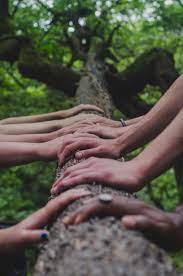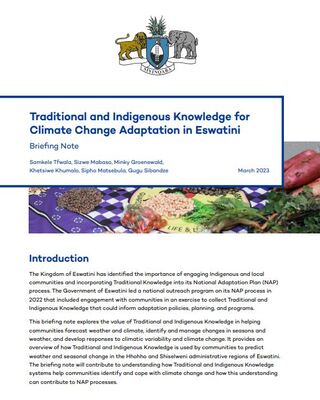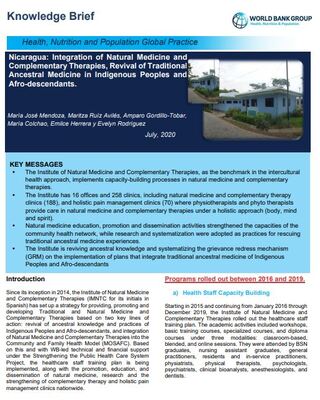Knowledge Hub
Co-designing climate services to integrate traditional ecological knowledge: a case study from Bali, Indonesia
2020
Author(s): Biskupska N, Salamanca A
This case study suggests that helping vulnerable indigenous populations adapt to climate change will require a reassessment of prevailing perceptions of their traditional ecological knowledge.
Meghalaya Biodiversity Strategy & Action Plan (MBSAP): 2017-2030
2019
Publisher/Organisation: Meghalaya Biodiversity Board, Wildlife Institute of India
The new MBSAP for 2017 — 2030 is developed along the lines of the 12 National Biodiversity Targets through extensive stakeholder consultations and public outreach. Implementing the MBSAP will be a challenging task and calls for active involvement of all the stakeholders. People's participation will remain central to its successful implementation with active support of the State Biodiversity Board.
Support to traditional healers for strengthening and capacity building
2017
Author(s): Bio-Resources Development Centre
This study provides profile of traditional healers in Meghalaya state. It also identifies constraints and problems of traditional healers.

Embedding indigenous knowledge in the conservation and restoration of landscapes
2023
Author(s): World Economic Forum
This report puts forward a set of principles and practices to inform how investors should think and what investors should do to engage Indigenous peoples and their knowledge in conservation and restoration of landscapes.

State of the World’s Indigenous Peoples, vol 5: Rights to Lands, Territories and Resources
2023
Author(s): United Nations
This publication offers a wide-ranging perspective on indigenous peoples’ rights to lands, territories and resources, analysing legislation and agreements at the national and international levels as well as customary law.
The Use of Climate-Related Indigenous Knowledge Systems to Support Anticipatory Action in Zimbabwe
2022
Author(s): World Food Programme
This study includes an overview of indigenous knowledge system indicators for climate forecasting and key recommendations on using climate-related indigenous knowledge services to support anticipatory action in Zimbabwe.

Traditional and indigenous knowledge for climate change adaptation in Eswatini
2023
Author(s): Tfwala S, Mabaso S, Groenewald M, Khumalo K, Matsebula S, Sibandze G
This briefing note explores the value of Traditional and Indigenous Knowledge in helping communities forecast weather and climate, identify and manage changes in seasons and weather, and develop responses to climatic variability and climate change.
The Biological Diversity (Amendment) Bill, 2021
2021
Publisher/Organisation: Lok Sabha, Ministry of Environment, Forest and Climate Change
The bill seeks to facilitate fast-tracking of research, encourage the Indian system of medicine, and decriminalize certain provisions for use of traditional knowledge.
Implementation lessons from World Bank operations in supporting indigenous peoples
2023
Author(s): World Bank
This Evaluation Insight Note builds on Independent Evaluation Group evidence to identify lessons for working with Indigenous peoples who live in poverty.

Nicaragua: integration of natural medicine and complementary therapies, revival of traditional ancestral medicine in indigenous peoples and Afro-descendants.
2020
Author(s): Mendoza MJ, AvilĂ©s MR, Gordillo-Tobar A, Colchao M, RodrĂguez EHE
The brief highlights the initiative of The Institute of Natural Medicine and Complementary Therapies in reviving traditional ancestral medicine among Indigenous Peoples and Afro-descendants in Nicaragua.



